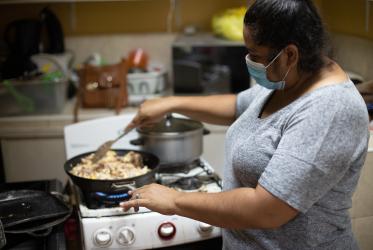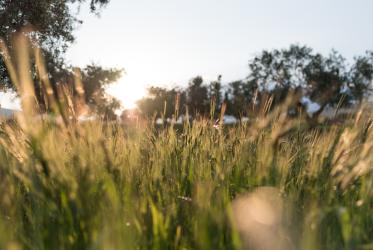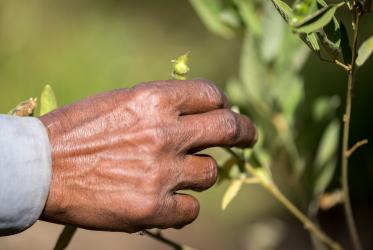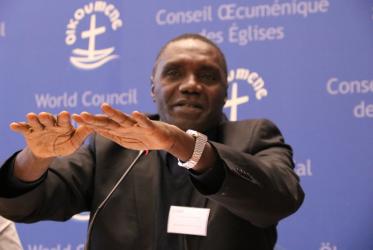Displaying 21 - 40 of 80
WCC invites webinar on ’Racism, Land and Food’
09 December 2021
Applications open for WCC Eco-School
22 October 2020
WCC condemns massacre of farmers in Philippines
12 April 2019
El CMI condena el asesinato de campesinos en Filipinas
12 April 2019
A faith-based, holistic approach to HIV and AIDS-care
13 March 2019
Faith and HIV treatment go hand in hand
06 March 2019
Turning mercy and compassion into action
04 March 2019
Agreement works toward food security in South Sudan
23 February 2019
On the journey to HIV – bridging gaps, debunking myths
21 February 2019
En el camino del VIH: colmar las lagunas, desmentir los mitos
21 February 2019















